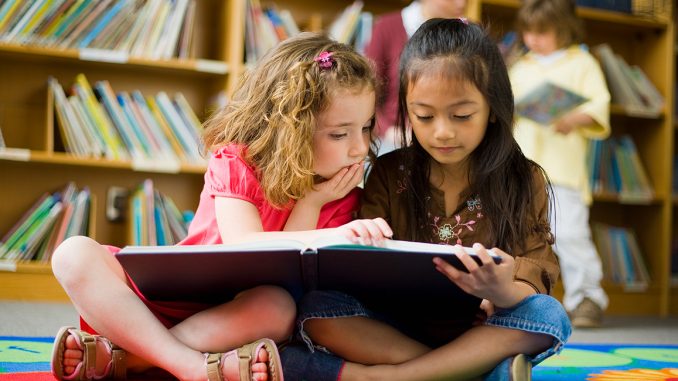
The American Library Association released a list Monday of the 13 most “challenged” books aimed at teens during 2022, blaming anti-LGBT prejudice for what it calls censorship even though each book contains sexually explicit content.
The ALA encourages readers to “show your commitment to the freedom to read” by protecting the 13 books, all marketed to teenagers and young adults. The organization argues that some jurisdictions have banned the books for “LGBTQIA+ content” and because they are “claimed to be sexually explicit.”
“The list also illustrates how frequently stories by or about LGBTQ+ persons, people of color, and lived experiences are being targeted by censors,” American Library Association President Lessa Kanani’opua Pelayo-Lozada said in a Monday press release. “Closing our eyes to the reality portrayed in these stories will not make life’s challenges disappear.”
When asked whether the American Library Association also opposes censorship of conservative scholar Ryan T. Anderson’s widely banned 2018 book on transgenderism, “When Harry Became Sally,” ALA Communications Director Shawna Hines told The Daily Signal that the group opposes book banning and doesn’t dictate library policies.
“A library acquiring a book is not an endorsement of the book or an idea,” Hines said Monday.
The top five on the American Library Association’s list of 13 most-challenged books are:
1. ‘Gender Queer’
“Gender Queer” is a memoir written by nonbinary author Maia Kobabe, who prefers the pronouns “e/em/eir.”
It has ranked as the ALA’s most banned book two years in a row because of its sexually explicit descriptions and illustrations.
Aides to Florida Gov. Ron DeSantis, a Republican, uncovered the presence of the graphic autobiography in several Florida public school libraries in February.
In one passage, Kobabe writes about trying to figure out if she is a gay boy trapped in a girl’s body, or whether a third, nonbinary option exists.
2. ‘All Boys Aren’t Blue’
“All Boys Aren’t Blue” has been removed from libraries in at least 29 school districts nationwide because of parental concerns about “sexually graphic material, including descriptions of queer sex,” Time magazine reported.
3. ‘The Bluest Eye’
“The Bluest Eye” contains “sexually explicit material,” “lots of graphic descriptions and lots of disturbing language,” PBS writes, as well as “an underlying socialist-communist agenda.”
4. ‘Flamer’
“Flamer” includes graphic descriptions of LGBT relationships.
5. ‘Looking for Alaska’ and ‘The Perks of Being a Wallflower’
The books “Looking for Alaska” and “The Perks of Being a Wallflower” tied for fifth place on the library group’s list. They too include graphic descriptions of LGBT relationships.
Next on the American Library Association’s list of 13 most-challenged books is “Lawn Boy,” which reviewers say is a “pedophilic” work with “exploitative and abusive elements [that] go beyond the swear words and the sexual passages.”
Other so-called banned books include “The Absolutely True Diary of a Part-Time Indian,” which some parents challenged for “profanity, sexual references, and allegations of sexual misconduct by the author.”
Parents also raised concerns about pornographic content in the books clustered closely for the next spots on the list: “Out of Darkness,” “A Court of Mist and Fury,” “Crank,” and “Me and Earl and the Dying Girl.”
Last on the ALA’s list is “This Book Is Gay,” which calls itself a guide for “anyone who’s ever dared to wonder” about their “gender or sexual preference.” The book argues that sex education should teach that “a lot of people choose to change their gender identity from the one they were assigned at birth.”
When asked about the criteria for book bans opposed by the American Library Association, Hines omitted parental concerns about reading material not being age appropriate as a reason for removing a book from a library.
“If a library does acquire a book for a reader, it should not be removed solely because someone objects to its viewpoint or content,” Hines said. “Acceptable grounds to remove a book might be that a book doesn’t circulate or if it is determined that a book includes deliberate falsehoods about the data.”
Several states, including Missouri, Texas, Utah, and Virginia, have passed measures in response to parental outrage to limit sexual content in public school curriculums and pedagogy.
Critics often claim that removing any book from a public school library is tantamount to book banning and other fascist practices.
However, books that are truly banned would be prohibited by a government on the market and in public spaces, while the books on the ALA’s list remain widely available in bookstores and many libraries, as well as on Amazon.
Jay Richards, director of the DeVos Center for Life, Religion, and Family at The Heritage Foundation, said the ALA’s list of challenged books is a “cynical exercise in diversion.” (The Daily Signal is Heritage’s multimedia news organization.)
Richards said he wonders whether the American Library Association considers anything short of teaching pornography and ideological catechesis to be censorship.
“Virtually every book on the ALA’s list of most-challenged books contains sexually explicit material,” he told The Daily Signal.
“Some—such as the first entry, ‘Gender Queer’—contain explicit pornography,” Richards continued. “What’s more, many of these books are explicit catechetical tools for instruction in gender ideology—a tendentious, sectarian, and psychologically debilitating toxin for kids.”
Have an opinion about this article? To sound off, please email letters@DailySignal.com and we’ll consider publishing your edited remarks in our regular “We Hear You” feature. Remember to include the url or headline of the article plus your name and town and/or state.

Be the first to comment